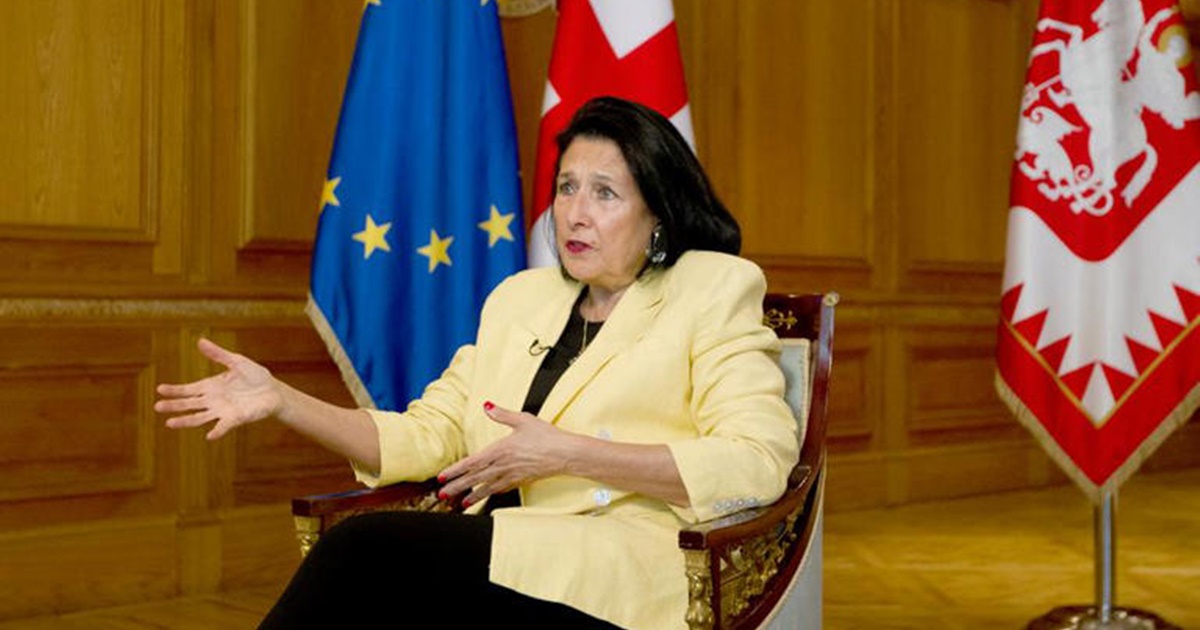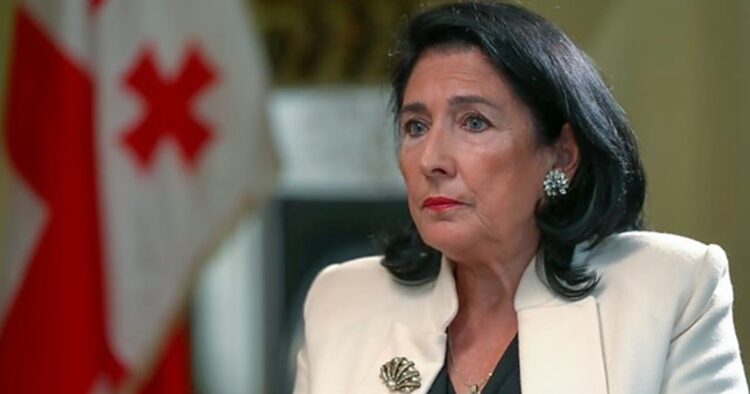Georgian President Salome Zourabichvili has vetoed a controversial law on foreign agents, as reported by Russia’s news agency. This decision was made official on Saturday. The law had previously sparked significant street protests across the nation.
President Zourabichvili had earlier promised to veto the bill, which has been a source of major public unrest. Despite her veto, the Georgian parliament, which is controlled by the ruling party and its allies, has the power to override her decision with another vote.
In a briefing, President Zourabichvili strongly criticized the bill, calling it “Russian in its essence and spirit.” She argued that the law goes against the Georgian constitution and European standards, making it an obstacle to Georgia’s ambitions of joining the European Union.

The President emphasized that her veto is legally sound and announced that it would be officially submitted to the parliament on Saturday. She firmly stated that the law “must be repealed.”
Protests and Public Outcry
Mass protests have taken place in the capital city, Tbilisi, since the parliament passed the first reading of the draft law. Thousands of citizens have taken to the streets to voice their opposition to the bill, which they believe threatens Georgia’s European future.
The proposed law mandates that organizations receiving more than 20% of their funding from foreign sources register as agents of foreign influence. This registration would require extensive disclosure and could lead to severe fines for non-compliance.
Critics of the bill argue that it is a critical test for Georgia’s direction—whether it will continue on its path towards European integration or shift back towards Russian influence. The United States and the European Union have repeatedly urged the Georgian Dream party to abandon the bill, warning that it could damage Georgia’s EU membership aspirations.
Despite President Zourabichvili’s veto, it is widely expected that the Georgian parliament will override her decision. The ruling party’s majority in parliament suggests that the controversial law might still be enacted, despite widespread opposition and international concern.

















Comments